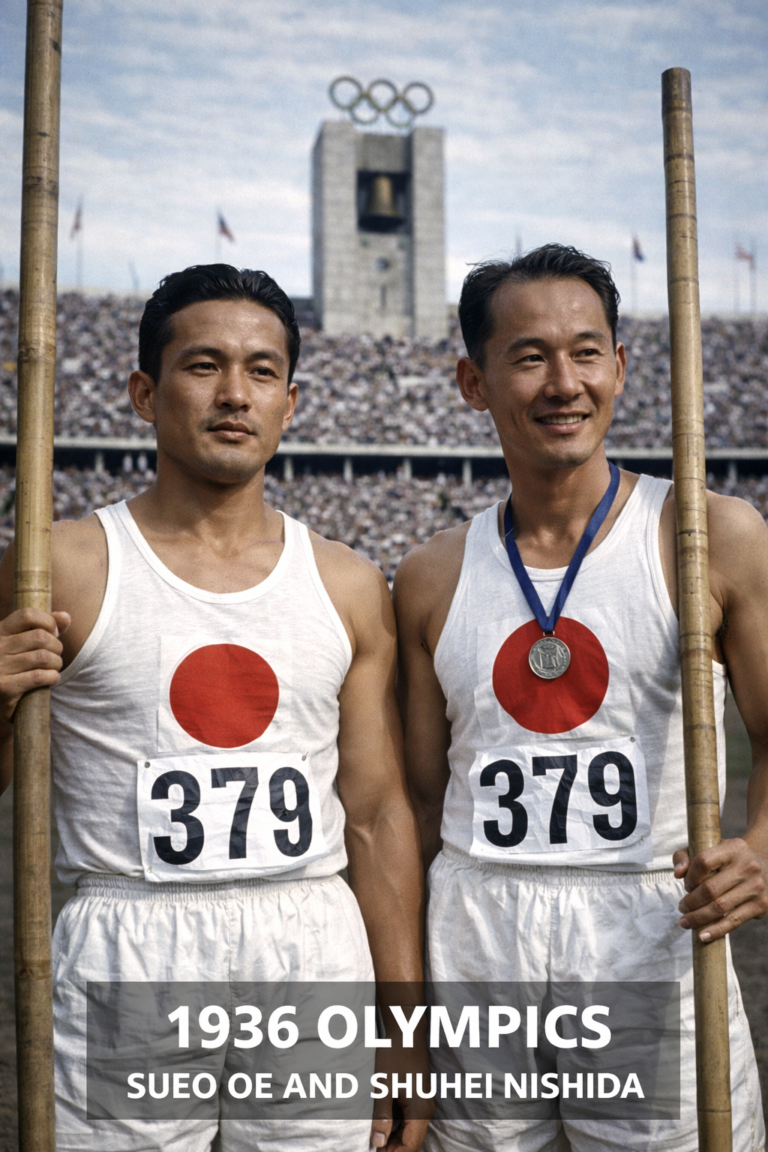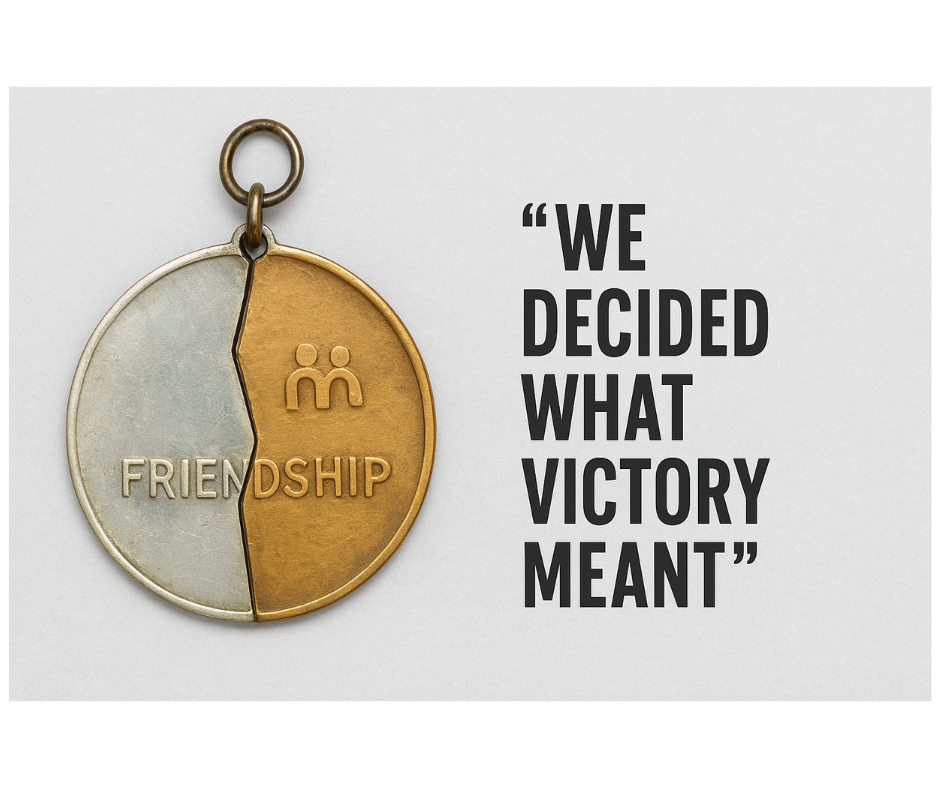Shuhei Nishida and Sueo Oe’s Olympic Rebellion
How two athletes turned competition into connection to defy the rules — and, in the process, rewrote what it means to win.
In 1936, Japanese pole vaulters Shuhei Nishida and Sueo Oe refused to let Olympic hierarchy define them. Their story of integrity, unity, and quiet rebellion perfectly embodies the NoRuleBook.com philosophy : freedom through authenticity.
The Story of the Friendship Medal
The 1936 Berlin Olympics was not just a showcase of athletic ability — it was a stage for political posturing and national pride. Every nation arrived determined to prove its superiority, its strength, its “rightness.”
And yet, in the midst of that competitive tension, two Japanese athletes — Shuhei Nishida and Sueo Oe — performed an act so humble and so powerful that it still resonates almost a century later.
Their story wasn’t about breaking a world record. It was about choosing to defy the rules that no one had dared question.
A Tie That Shouldn’t Have Happened
Both Nishida and Oe cleared the same height in the pole vault finals. Their performances were so evenly matched that Olympic officials struggled to determine who deserved silver and who should take bronze.
But the rules — the written and unwritten ones — said there could only be one victor. The idea of two equals sharing a medal was unthinkable.
Officials pressured the Japanese team to decide which athlete would take second place. Ultimately, Nishida was awarded the silver medal, and Oe the bronze.
The system was satisfied. The hierarchy was restored.
But Nishida and Oe weren’t satisfied — because something deeper mattered more.
Rewriting the Rulebook
When they returned to Japan, the two athletes made a quiet but radical decision. They took their medals to a jeweler and had each one cut in half.
Then, they fused the halves together — one side silver, one side bronze — creating two identical medals that they called the “Medals of Eternal Friendship.”
It was an elegant rebellion.
No protests, no anger, no speeches.
Just a calm, deliberate refusal to let anyone define the meaning of their achievement.
They chose unity over rivalry, respect over ranking, and friendship over formality.
“The system may decide who wins — but only you can decide what victory means.”
— NoRuleBook.com Reflection
Defiance Without Noise
In an age obsessed with dominance, their act of equality was quietly revolutionary.
They didn’t challenge the Olympic Committee publicly, nor did they demand recognition. They simply created their own definition of success — and lived it.
This is the No Rulebook philosophy in its purest form :
freedom through authenticity, rebellion through choice.
They proved that you can defy the rules without starting a war.
You can break the hierarchy simply by refusing to climb it.
A Legacy That Outlived the Medals
Decades later, Nishida and Oe’s story continues to inspire. Their medals, preserved in museums and archives, remain a symbol of unity and courage — a reminder that greatness is measured not by status, but by character.
They taught the world that rules, even at the Olympic level, are only as powerful as our willingness to obey them.
Their friendship wasn’t a footnote in history — it was a lesson in what real victory looks like.
“Freedom begins when you stop measuring your worth by someone else’s system.”
— NoRuleBook.com
Lessons We Can Learn from Shuhei Nishida and Sueo Oe
True victory isn’t about being first — it’s about being free.
You win when your success reflects your values, not someone else’s scoreboard.Defiance doesn’t always need noise.
Quiet resistance — choosing integrity when no one expects it — can be the most powerful rebellion of all.Rules lose power when we stop believing in them.
The Olympic officials decided the ranking. Nishida and Oe decided the meaning.Connection is stronger than competition.
They turned rivalry into friendship, and friendship into legacy.Write your own definition of success.
Don’t climb the ladder just because it’s there — question who built it, and why.
Final Reflection
The story of Shuhei Nishida and Sueo Oe is a timeless reminder that the rulebook only controls those who agree to play by it.
When you live by your own principles, success becomes limitless — because it’s defined by you.
At NoRuleBook.com this story is at the heart of our message :
Don’t just chase victory. Redefine it.
Don’t just follow the system. Rewrite it.
Because freedom doesn’t come from winning —
it comes from refusing to be ruled and to defy the rules.










